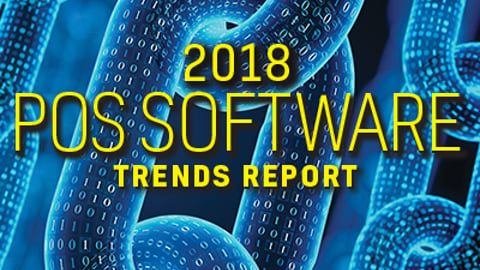4 Technologies That Could Revolutionize POS in the Hospitality Industry
Before it was called "point of sale," customers have always had a way to pay for their purchases. In the past, they consisted of cash boxes and microprocessor-controlled cash registers, later evolving to barcodes, mobile payments, and now, cloud-based technology. As technology continues to evolve, the industry will continue to shift. This article from Revel Systems discusses how some of the latest technologies poised to catalyze an industry shift include augmented reality, autonomous cars, artificial intelligence, and ambient biometrics.
Retail On-The-Go
Although electric and self-driving cars are not a new concept, car companies are hinting at the incredible opportunities to be introduced by the next generation of cars arriving around 2020-2025. Loup Ventures claims that by 2040, more than 90% of all vehicles sold will be highly and fully autonomous systems. These advancements introduce exciting opportunities for hospitality e.g. a gas car nowadays takes roughly 5 minutes to refuel - a quick process that doesn’t leave the customer much time to browse. However, electric cars, which can take 15-30 minutes to charge, present an extended waiting period to capitalize on for retailers and restaurateurs. Customers will be more inclined to sit down for a meal rather than grabbing a snack, opening lucrative opportunities for restaurants aiming to attract this growing, captive audience.
Convenient hospitality opportunities are also presented through the cloud connection of electric vehicles. Soon, consumers will be authenticated for purchases through their car. We will have the ability to identify a person and vehicle that’s already attached to a pre-existing profile, offering a speedy and seamless payments process. The first example is Tesla where the car itself is the user interface. The manufacturer already has the user’s card number and can ID the car so there’s no need for a user interface on the supercharger.
Tapping into Voice Ordering
This will bring new convenience opportunities within the restaurant space and more concise integration between the purchasing establishment and the in-car infotainment experience. In the next 1-3 years we may see the arrival of a voice ordering experience that allows consumers to communicate through an app in their car’s infotainment system. Apple’s CarPlay and Android Auto are already in use, helping the quality of experience to improve and evolve. Drive-thrus and fast casual restaurants will build on this to make customer verification, payments and the loyalty experience effortless.
Augmented Reality Meets Hospitality
During the next few years, consumers could see an increasingly notable presence of Augmented Reality (AR) in hospitality especially through location services. AR can empower hotel managers, and restaurant owners to route customers to specific locations on site for queuing, order pickup or hotel room check-ins. Food trucks, using AR capabilities, can enable customers to see menu items and prices on their phone or order straight from the camera view before they step up to the window. The pickup window could also animate when the order is ready, simplifying and organizing the sometimes-chaotic flow around food trucks.
In the next year or so, we will see the next round of enablement through AI-based assistants. Amazon has started to show us what is possible with the Echo and we’re getting closer to this with Siri. Although this type of purchase intent is already available through some apps, we’re not quite there yet but we can already hail a ride and book a restaurant table using Siri.
Digital Identity and Authentication Technology
Biometrics is consistently improving and becoming more frictionless, and these experiences are here to stay. Face ID has been well executed by Apple and they have proven that biometrics can become even more convenient e.g. touch ID is already phenomenal. In a hospitality context, we imagine a seamless process where a user can authenticate a purchase, then put their phone away, while remaining authenticated. We’ve seen such frictionless use cases with proof of concept trials at Amazon’s brick and mortar store. “Always on” biometric authentication will allow users to leave right after a meal in a restaurant or check out of a hotel knowing that the transaction has seamlessly and automatically occurred without the need to check out with staff or a physical terminal. Due to infrastructure and security requirements, this ability may be pushed farther out, perhaps by 5 years. Progress may be hindered by the complex way the credit card processing system works today. There is a lot of intricacy involved in the EMV chip and NFC (tap) use cases, but more certificate-based payment options will eventually be introduced.
POS systems have progressed considerably and continue to become more adept and frictionless. The next inspiring era will provide new levels of experience for the hospitality industry, testing the boundaries of innovation -- anywhere, anytime. We look forward to taking part in these exciting new advancements.



